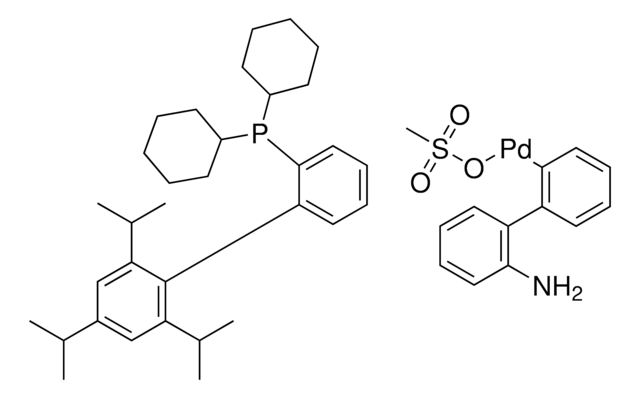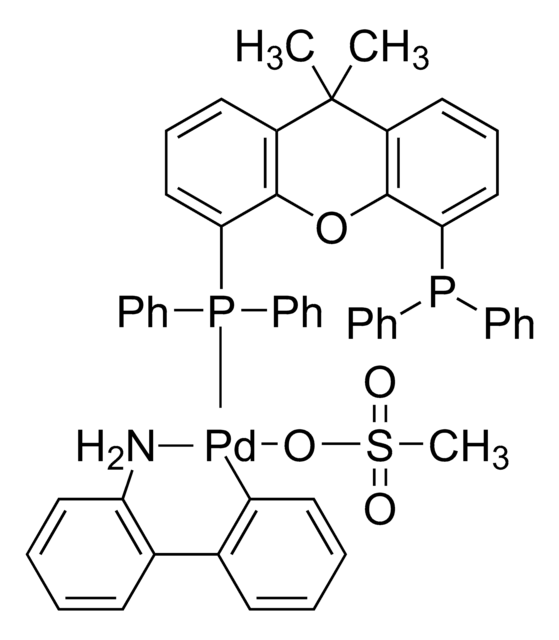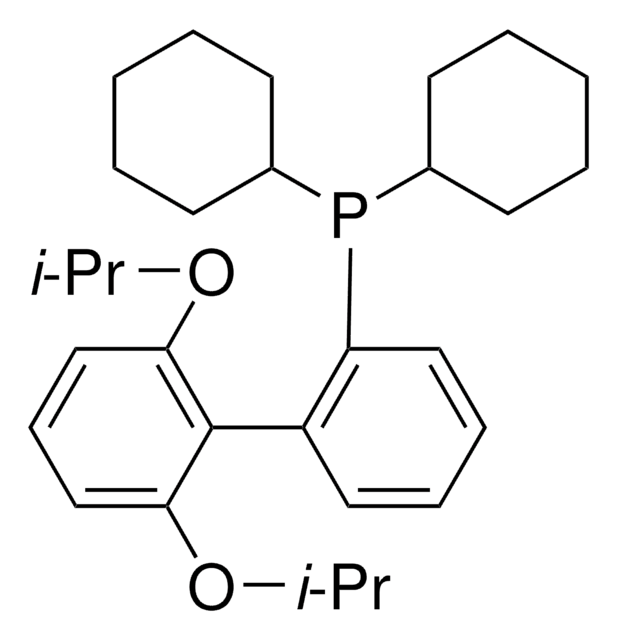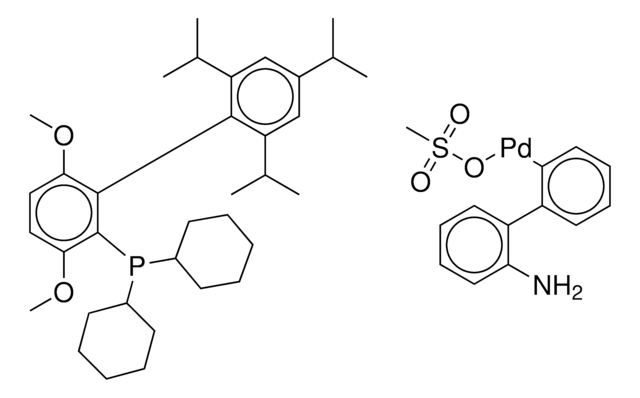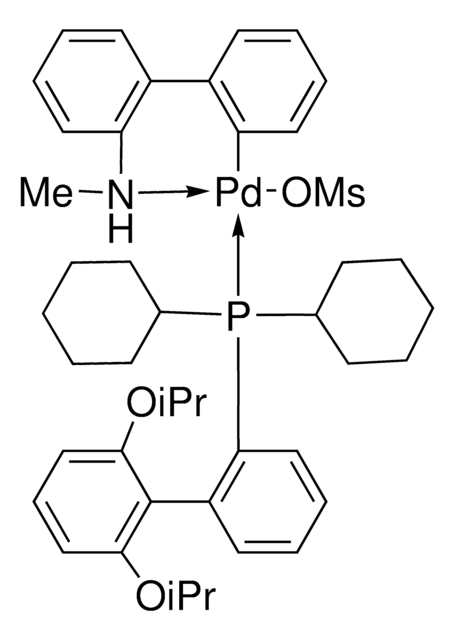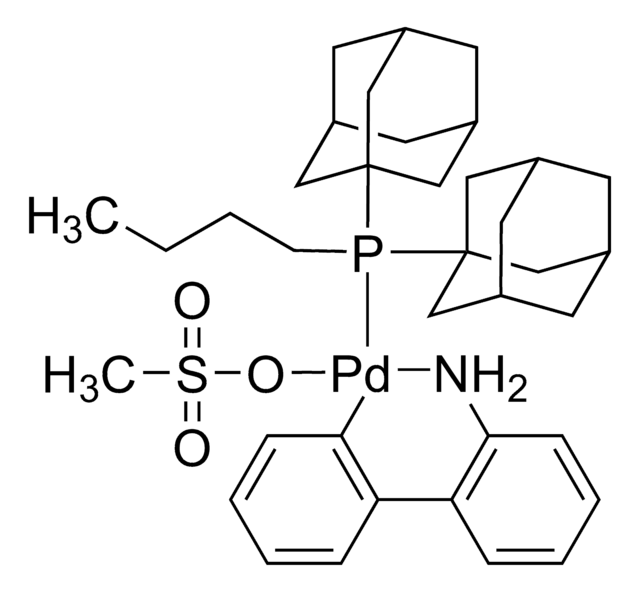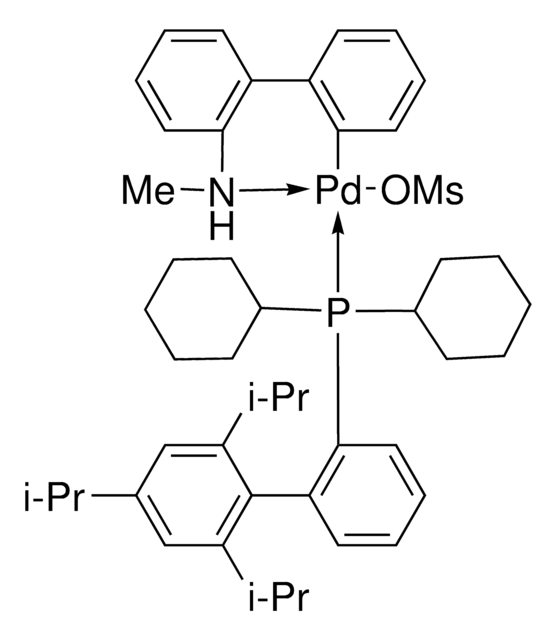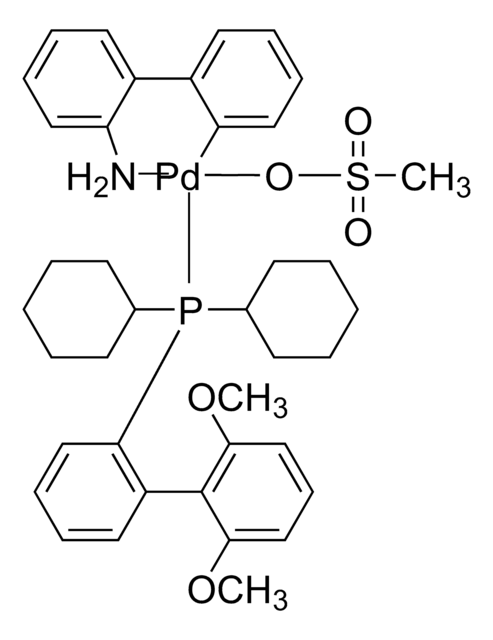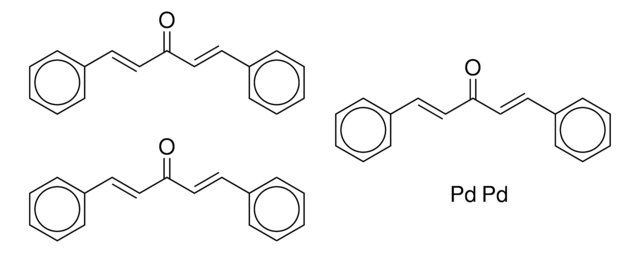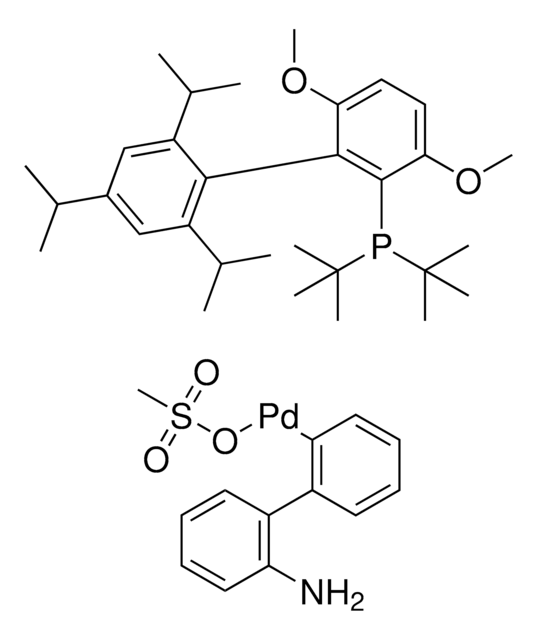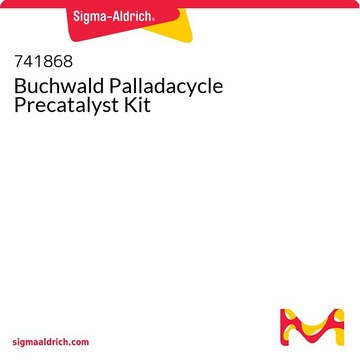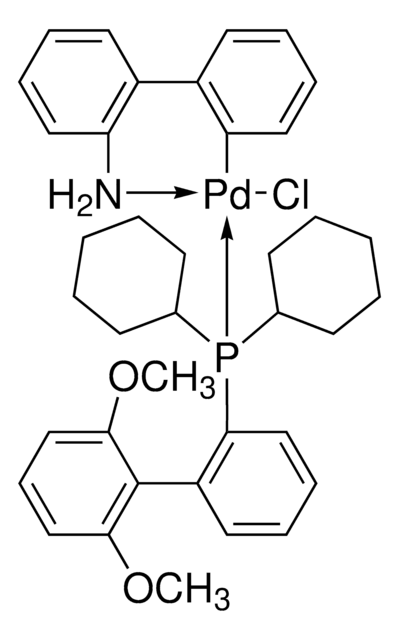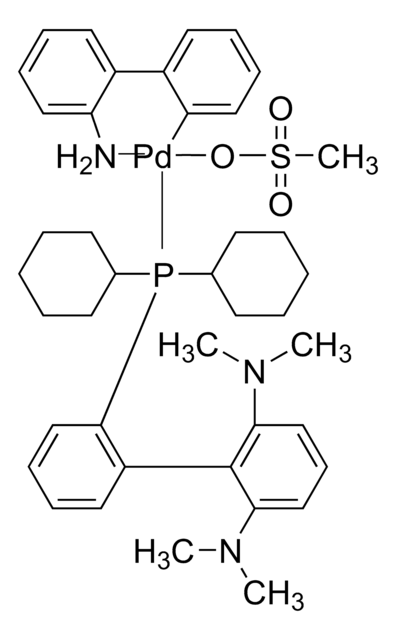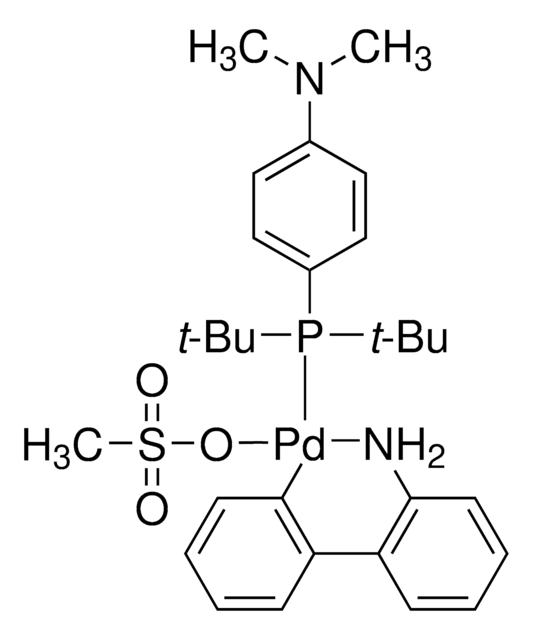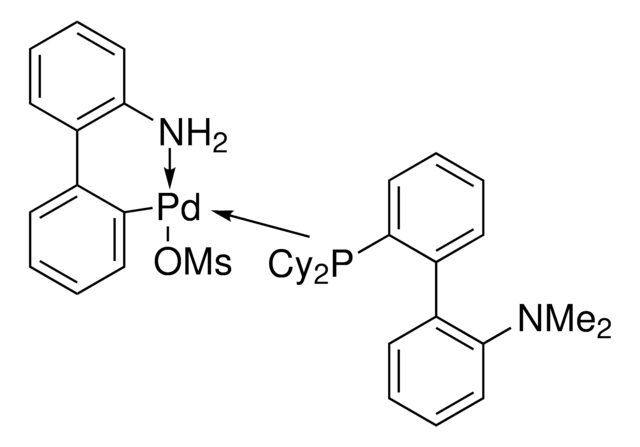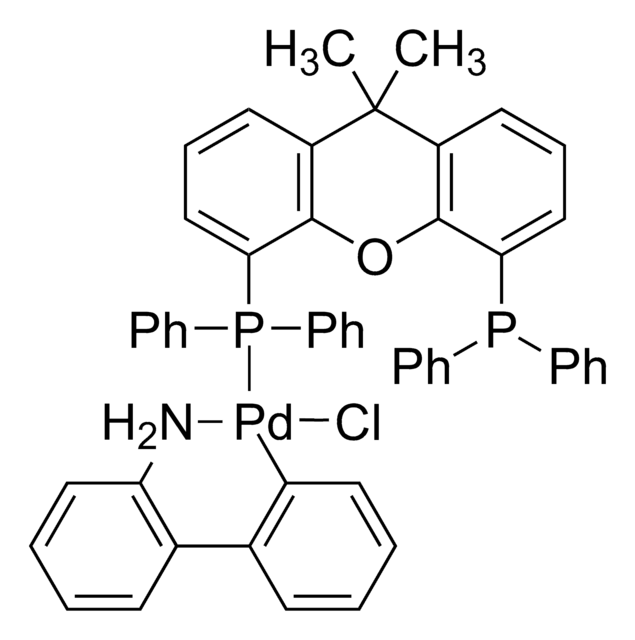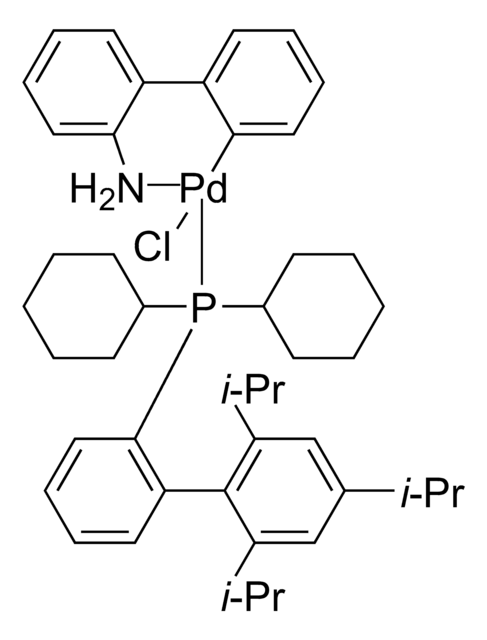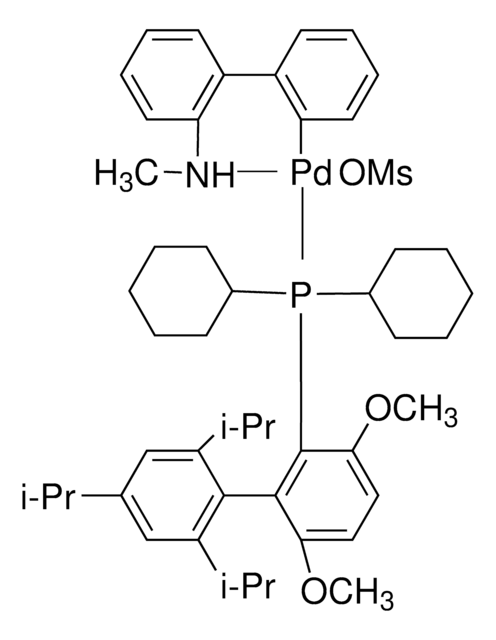763403
RuPhos Pd G3
98%
Synonym(s):
(2-Dicyclohexylphosphino-2′,6′-diisopropoxy-1,1′-biphenyl)[2-(2′-amino-1,1′-biphenyl)]palladium(II) methanesulfonate, RuPhos-G3-Palladacycle, RuPhos-Pd-G3
About This Item
Recommended Products
Quality Level
Assay
98%
form
solid
feature
generation 3
reaction suitability
core: palladium
reaction type: Buchwald-Hartwig Cross Coupling Reaction
reaction type: Heck Reaction
reaction type: Hiyama Coupling
reaction type: Negishi Coupling
reaction type: Sonogashira Coupling
reaction type: Stille Coupling
reaction type: Suzuki-Miyaura Coupling
reagent type: catalyst
reaction type: Cross Couplings
mp
188-196 °C (decomposition)
functional group
phosphine
SMILES string
CS(=O)(=O)O[Pd]c1ccccc1-c2ccccc2N.CC(C)Oc3cccc(OC(C)C)c3-c4ccccc4P(C5CCCCC5)C6CCCCC6
InChI
1S/C30H43O2P.C12H10N.CH4O3S.Pd/c1-22(2)31-27-19-13-20-28(32-23(3)4)30(27)26-18-11-12-21-29(26)33(24-14-7-5-8-15-24)25-16-9-6-10-17-25;13-12-9-5-4-8-11(12)10-6-2-1-3-7-10;1-5(2,3)4;/h11-13,18-25H,5-10,14-17H2,1-4H3;1-6,8-9H,13H2;1H3,(H,2,3,4);/q;;;+1/p-1
InChI key
AXZLIMCJMPNFFU-UHFFFAOYSA-M
General description
Application
- Palladium-catalyzed Suzuki coupling of 5-p-toluenesulfonyltetrazoles with arylboronic acids to synthesize 1,5-disubstituted tetrazoles.
- Suzuki-Miyaura catalyst-transfer polycondensation (SCTP) of 3-alkylthiophenes in the presence of N-methylimidodiacetic (MIDA)-boronate monomers.
- Suzuki-Miyaura-cross-coupling of aminothiophenes.
related product
Signal Word
Warning
Hazard Statements
Precautionary Statements
Hazard Classifications
Aquatic Chronic 3 - Eye Irrit. 2 - Skin Irrit. 2 - STOT SE 3
Target Organs
Respiratory system
Storage Class Code
11 - Combustible Solids
WGK
WGK 3
Flash Point(F)
Not applicable
Flash Point(C)
Not applicable
Choose from one of the most recent versions:
Already Own This Product?
Find documentation for the products that you have recently purchased in the Document Library.
Customers Also Viewed
Articles
G3 and G4 Buchwald palladium precatalysts are the newest air, moisture, and thermally stable crossing-coupling complexes used in bond formation for their versatility and high reactivity.
Our team of scientists has experience in all areas of research including Life Science, Material Science, Chemical Synthesis, Chromatography, Analytical and many others.
Contact Technical Service